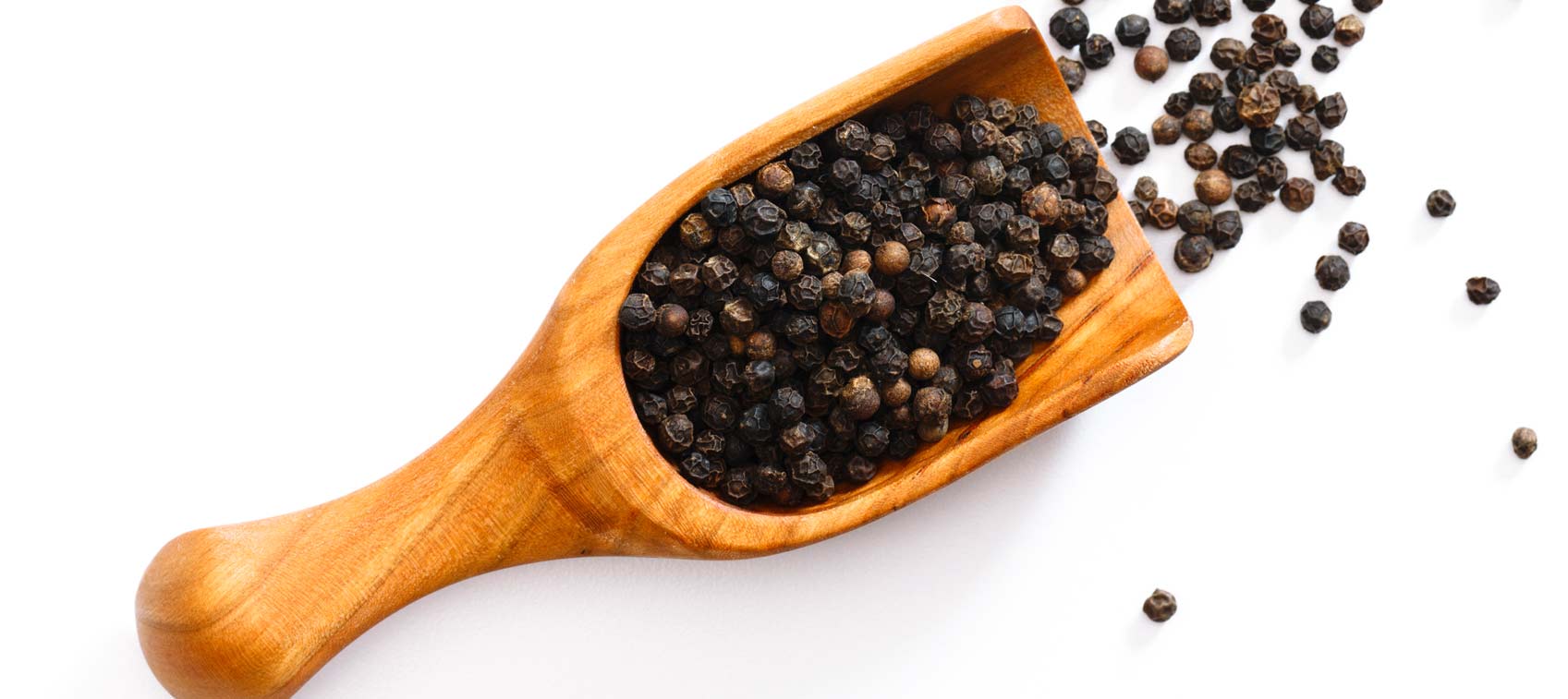
Black pepper is the most popular seasoning in the world. Known as the “king of spices,” pepper comes from Piper nigrum, a flowering vine native to India that has been prized throughout history.
Pepper was also valued by traditional healers, who used it to treat a number of ills. Today, pepper is primarily used for culinary purposes. But it does contain one phytonutrient that has garnered attention in medical research: piperine.
The Multiple Benefits of Piperine
This alkaloid is responsible for pepper’s pungent flavor and its annoying ability to cause sneezing. A potent antioxidant and anti-inflammatory, piperine increases the activity of pancreatic enzymes required for digestion and boosts thermogenesis, or energy burning.
Some research suggests that piperine can also prevent fat cells from forming. Previous studies had shown that piperine lowers levels of fat and glucose in the bloodstream, but scientists didn’t know how it worked at the cellular level. In this study, researchers took cells destined to become fat cells and exposed them to piperine for 72 hours. Piperine interfered with the genes responsible for the formation of new fat cells—without being toxic to other cells. Furthermore, it appeared to actually set up a chain reaction that helped keep fat in check.
One of the other benefits of piperine is its ability to significantly boost the absorption and bioavailability of nutrients and other substances. For example, when piperine is taken with certain supplements, it raises blood levels of those nutrients. For example, adding 5 mg of piperine to 120 mg of coenzyme Q10 (CoQ10) for two weeks resulted in a 30 percent higher blood level of CoQ10 than when CoQ10 was taken alone. Beta-carotene, vitamin B6, and selenium have been shown to be similarly affected. And for the same reason, piperine is often added to curcumin supplements because it can increase their bioavailability by as much as 2,000 percent!
Piperine enhances absorption and bioavailability by stimulating the transport of certain substances across the intestinal walls and inhibiting enzymes involved in metabolism and detoxification. As a result, these nutrients are able to reach target tissues and remain there longer. But there is a downside to this benefit. Piperine has similar effects on a fairly extensive list of drugs, including beta blockers, barbiturates, theophylline, and sildenafil (Viagra). It makes them stay in the system longer and at higher levels, which may increase toxicity. This could also be used as an advantage, however, allowing for lower dosing and increased effectiveness.
I encourage you to enjoy some freshly ground black pepper, and don’t worry about interactions—you won’t get enough piperine to do any harm. To get the freshest and most potent piperine, buy black peppercorns and grind them yourself. You can also find piperine extract online or in health food stores and in some of the supplements mentioned above. Take as directed, and if you are on medications, research interactions before taking supplements containing piperine.


